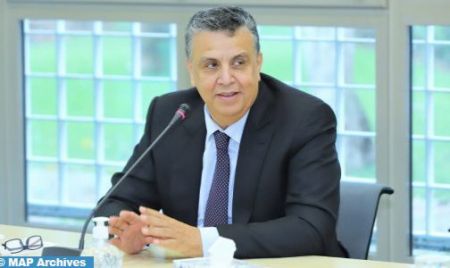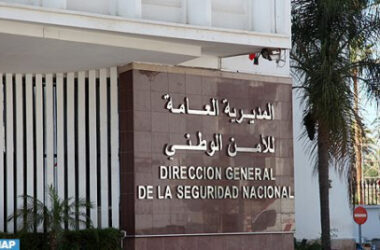Speaking on this occasion, the Minister of Justice, Abdellatif Ouahbi, reviewed various advances in the field of justice achieved by the kingdom, noting that the death penalty remains, in this sense, a major issue of debate between the society’s components and one of the key points of the criminal justice reform, which is a project opened for several years, in order to comply with the ratified international conventions’ provisions.
This project is also consistent with the outcomes of the comprehensive national dialogue on the reform of the judiciary, the recommendations issued by the Equity and Reconciliation Commission, as well as observations and problems raised from the field, noted the Minister at this event, held in the presence of Morocco’s Ambassador to the Holy See, Rajae Naji Mekkaoui.
Ouahbi said that “the orientation of the Moroccan penal policy reflects the positive interaction of the Kingdom with the UN resolution No. 77/2002” on the death penalty, adopted by the “Human Rights Committee” in April 2002, which calls on all countries that still apply the death penalty to progressively reduce the number of crimes punishable by death, suspend the application of existing death sentences, with a view to its complete abolition, and to inform the public on its application.
Moreover, the guarantees provided by Moroccan law are consistent with those adopted by the Economic and Social Council in its resolution 1984/50 of May 25, 1984, he recalled, noting that the Moroccan justice treats capital punishment with great rigor and rationality, insofar as the annual rate of convictions is less than 10 cases.
The convictions have all been made following crimes of great gravity, and the number of people sentenced to death to date is about 83 people, including 81 men and two women, he said.
According to the minister, the royal pardon plays a key role in restoring the balance of the punishment policy, as well as in restricting the number of convicts, by switching a number of cases of capital punishment in life or fixed term. A total of 156 cases have been affected between the years 2000 to date, he added.
The Ministry of Justice “ensures that in the bilateral conventions concluded in criminal matters or amendments thereto, the substitution of the death penalty by the most serious penalty provided for the same act”, while giving, within the framework of instruments of international judicial cooperation, “guarantees ensuring the non-recourse to their execution”.
In this sense, and pending the outcome of the public debate between opponents and supporters of capital punishment, the criminal policy has focused on the establishment of several measures for a gradual reduction, following a restrictive approach to cases liable to such convictions, said the Minister, citing a proposal for a reduction to the maximum of the articles providing for the death penalty, within the limit of two or three cases relating to crimes of a serious nature, knowing that the number of articles providing for this penalty in the penal code in force is 36 cases.










